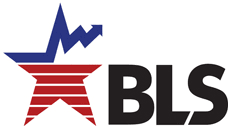 Safety/Quality
Safety/Quality
ASA annual meeting highlights top 10 risks of providing anesthesia in ambulatory setting

Editor's Note There are certain patients and clinical situations that may require anesthesiologists to say no to performing surgery in the outpatient/ambulatory setting, Anesthesiology News April 4 reports. At the 2023 annual meeting of the American Society of Anesthesiologists (ASA), BobbieJean Sweitzer, MD, a professor of medical education at the…
Study: 10% of deaths after PCI preventable

Editor's Note New data show 10% of deaths from percutaneous coronary intervention (PCI), a common and minimally invasive procedure to unclog arteries, are preventable. The study appeared in PLOS ONE on March 27. PCI is one of the most common surgical procedures. More than 500,000 Americans undergo the procedure each…
Patient survey: Excessive needlesticks during hospital visits impede workflow

Editor's Note A new survey finds that hospital patients receive more needlesticks than necessary, negatively impacting their experience and contributing to workflow issues. The survey was published March 27 by medical technology company BD and conducted by the Harris Poll. More than 1 in 10 (11%) of 2,006 surveyed adults, including…
Urologists advocate for resources to help surgeons prepare for, cope with adverse events
Editor's Note Adverse events are a ubiquitous, inevitable consequence of surgical practice, and more must be done to support surgeons before and after they occur. This is the central message of a video published March 27 by Urology Times, in which British urologist Kevin Turner, MA DM FRCS, of Royal…
Concierge physician practices expanding to large hospitals

Editor's Note The practice of concierge physicians is expanding as thousands of doctors at large hospital systems shift to a model facilitating high fees and decreased patient load, according to an April 1 report in KFF Health News. The concierge physician model began decades ago in wealthy areas of Florida…
Study: GLP weight loss, diabetes therapies boost GI endoscopy pneumonia risk

Editor's Note Gastrointestinal endoscopy could increase the risk of aspirational pneumonia in patients using GLP-1 receptor agonists (RAs) to manage weight or treat diabetes, according to an April 1 report from MedPage today. Citing research published in the journal Gastroenterology by a team led by Kevin Sheng-Kai Ma, DDS, of…
Healthcare employment up in March

Editor's Note Healthcare employment in the US rose by 72,000 from March to April, according to the latest report from the Bureau of Labor Statistics, released on April 5. That is compared to an overall monthly gain of 231,000 in March. In March, healthcare employment also trended up in: ambulatory…
FDA approves new antibiotic for staph, other infections

Editor's Note The US Food and Drug administration approved Zevtera for treating Staphylococcus aureus bacteremia (SAB) bloodstream infections, which are often acquired in healthcare settings. In the April 3 announcement, the agency notes the new antibiotic Zevtera (ceftobiprole medocaril sodium for injection) is effective for SAB-infected patients with right-sided infective…
Hospitals curtail outpatient care, ramp up staffing in advance of solar eclipse

Editor's Note Monday’s solar eclipse has prompted hospitals in affected areas to implement precautionary measures in advance of an expected influx of visitors as well as potential communication and other difficulties, Becker’s Hospital Review reported April 2. Areas in the path of totality, which stretches from Central Texas to Northeastern…
Laparoscopic cholecystectomy could benefit patients with normal ejection fraction

Editor's Note Patients with biliary symptoms can benefit from laparoscopic cholecystectomy even with a normal ejection fraction (greater than 35%), according to a study published November 30 in the American Journal of Surgery. Although previous data have shown the surgery to improve biliary symptoms (such as abdominal pain) in patients…

 Free Daily News
Free Daily News